What Are the Best AP Physics C Textbooks and Prep Books?
5 min read•july 11, 2024
Riya Patel
AP Physics C: Mechanics ⚙️
68 resourcesSee Units
Best AP Physics C Textbooks and Prep Books
There are many, many textbooks and prep books out there for AP Physics C, and choosing one to use can be overwhelming at times.

We all know trying to find a book that works is hard sometimes! Courtesy of GIPHY
However, don't fear! We're here to help you find a textbook and prep book that works for you!
📕 The Top Textbooks for AP Physics C
The Course Audits for the two AP Physics C courses, where College Board states the syllabi for teachers, lists approved textbooks for the course. Each teacher will have their own preference, and you will probably develop one, too. Here are some of the most common textbooks used for AP Physics C (some are not in the AP Course Audit).
Note: All of these textbooks contain content not tested on the AP Exam as these are university textbooks used to teach the entire introductory physics sequence.
Sears and Zemansky's University Physics (Mech: Ch. 1-10, 13-14; E/M: Ch. 21-32) (Best for Visual Learners)
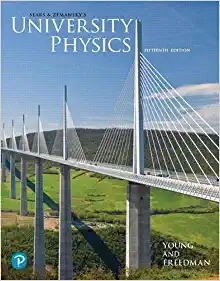
Sears and Zemansky's University Physics 15th Edition Cover Courtesy of Amazon
Young, Hugh D., Roger A. Freedman, T.R. Sandin, and A. Lewis Ford. Sears and Zemansky’s University Physics. Reading, MA: Addison-Wesley.
Sears and Zemansky’s University Physics has a long lifespan, now on its 14th edition. It is clear and easy to understand, even though some questions are harder than actual exam questions. Visual learners will enjoy the many illustrative figures and diagrams, and the end-of-chapter review brings together all the necessary definitions and equations.
Pros:
- Longevity
- Easy to understand
- Many figures and diagrams
- Useful End-of-Chapter Review
Cons:
- Some questions may be overly complicated
- Costly
Fundamentals of Physics by Halliday (any version) (Mech: Ch 1-11, 13, 15; E/M: Ch 22-32) (Best for Derivations)
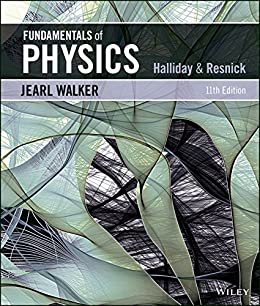
Fundamental of Physics 11th Edition Cover Courtesy of Amazon
Halliday, David, Robert Resnick, and Jearl Walker. Fundamentals of Physics. New York: John Wiley & Sons. (or any variation on the Halliday text)
This is currently in its 11th edition. The 11th version is all in black-and-white and is more rigorous (it's used primarily by Physics Olympiad students) while the older version is in color and is the one more commonly used by AP students. It is slightly harder to read than University Physics above, but the derivations done are extremely helpful.
Pros:
- Longevity
- Many derivations
- Useful End-of-Chapter Review
Cons:
- Some questions may be overly complicated
- Costly
- More rigorous than is needed for the AP test
Physics for Scientists and Engineers by Giancoli (Mech: Ch. 1-11, 14; E/M: Ch. 21-31) (Best for Real-World Applications)
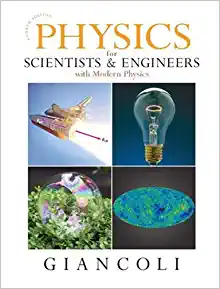
Physics for Scientists & Engineers with Modern Physics 4th Edition Cover Courtesy of Amazon
Giancoli, Douglas C. Physics for Scientists and Engineers. Upper Saddle River, NJ: Prentice Hall.
This book is a little dated with its most recent version released in 2008, but it is still a classic among AP Physics teachers. With Giancoli's Physics being one of the most widely used AP Physics 1 and 2 textbooks out there, if you've used that book for those courses, then you'll probably be familiar with the teaching style in this book! This book has slightly fewer diagrams and models than the other two but does a great job of keeping situations applicable to everyday life.
Pros:
- Many diagrams
- Many applications
- Useful End-of-Chapter Review
Cons:
- Some questions may be overly complicated
- Costly
- More rigorous than is needed for the AP test
- Dated
Openstax's University Physics, Volume 1 (Mech: Ch. 1-11, 13, 15) and Openstax's University Physics, Volume 2 (E/M: Ch. 5-16) (Cheapest)
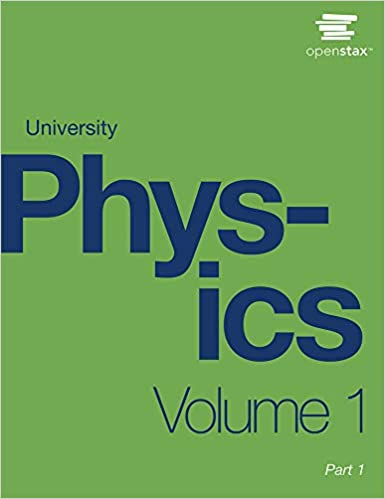
University Physics Volume 1 Cover Courtesy of Amazon
Moebs, William, Samuel Ling, and Jeff Sanny. University Physics Volume 1. OpenStax.
This is the most cost-effective textbook and is awesome for students who do not have a textbook on hand. Why? The PDF and online versions are all available for free here, completely legally! This book is great for reference, and it combines the teaching styles of the books above. However, it slightly lacks in practice problems.
Pros:
- Many diagrams
- Free
Cons:
- No questions
- More rigorous than is needed for the AP test
👩💼 The Top Prep Books For AP Physics C
There are a few prep books out there for AP Physics C, and choosing one that works for you may be a little challenging, but we have some recommendations for you as well for prep books!
Princeton Review's Cracking the AP Physics C Exam (Closest to the AP Test for Both Mechanics and E/M)
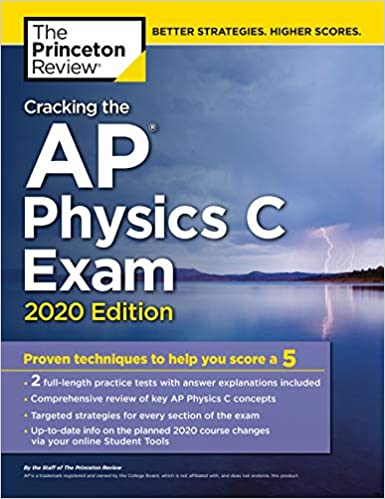
Cracking The AP Physics C Exam 2020 Edition Cover. Courtesy of Amazon.
This is a Fiveable-favorite prep book that reviews everything on the AP Physics C test accurately. It's filled with practice problems and examples that you need for the AP test.
Pros:
- Easy to understand
- Many figures and diagrams
- Many practice problems
- Practice tests
Cons:
- Somewhat costly
- Excess if you only intend to take one of the two tests
Barron's AP Physics C (Most Detailed)
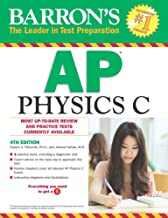
Barron's AP Physics C 4th Edition Cover Courtesy of Amazon
Many students love the Barron's brand, and for a good reason. This book has much of the same features as the Princeton Review book but is denser in information, making it ideal for self-studiers who may need the information when they don't have a textbook.
Pros:
- Many figures and diagrams
- Many practice problems
- Practice tests
Cons:
- Somewhat costly
- Excess if you only intend to take one of the two tests
- There are some errors
- There may be some content not tested on either test
- Dense in information
The AP Physics C Companion: Mechanics (Best for those Only Studying for Mechanics)
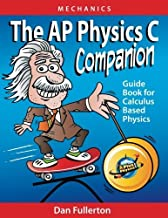
The AP Physics C Companion: Mechanics Cover Courtesy of Amazon
This book is made by someone who teaches high school physics and also has a YouTube channel for it too! Also, this is the only prep book that covers mechanics exclusively, no E&M.
Pros:
- Easy to understand
- Many figures and diagrams
- Many practice problems
- Written by someone experienced with the Mechanics Test
- Good for those only studying for Mechanics
Cons:
- Somewhat costly
- No E & M
Closing Thoughts
Many books are offered for AP Physics C: Mechanics, and in the end, it's your choice as to which book you will use! However, keep in mind that this is not a fully exhaustive list, and these are just the ones that we find the best for this course!
Browse Study Guides By Unit
🚗Unit 1 – Kinematics
🚀Unit 2 – Newton’s Laws of Motion
🎢Unit 3 – Work, Energy, & Power
🎳Unit 4 – Systems of Particles & Linear Momentum
🚲Unit 5 – Rotation
🌊Unit 6 – Oscillations
🪐Unit 7 – Gravitation
📚Study Tools

Fiveable
Resources
© 2025 Fiveable Inc. All rights reserved.